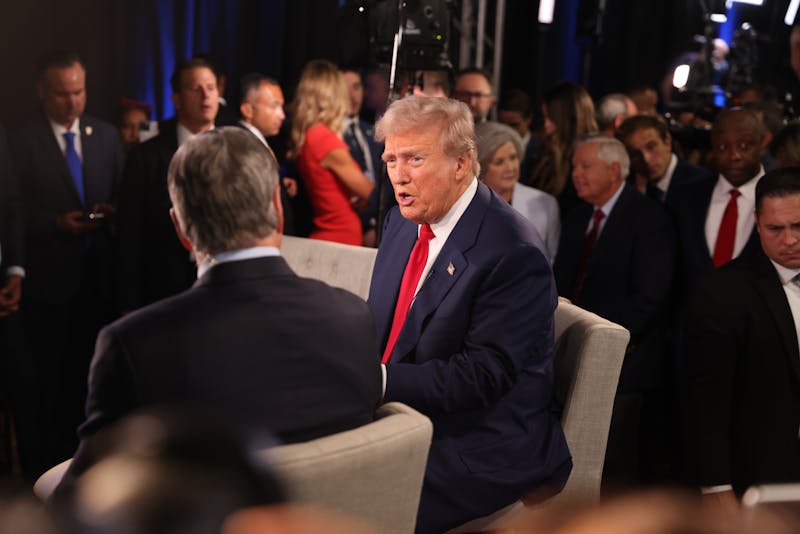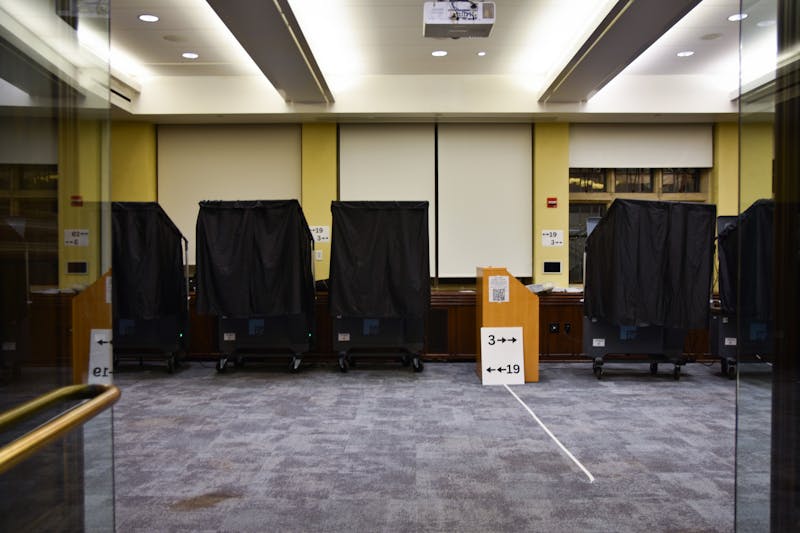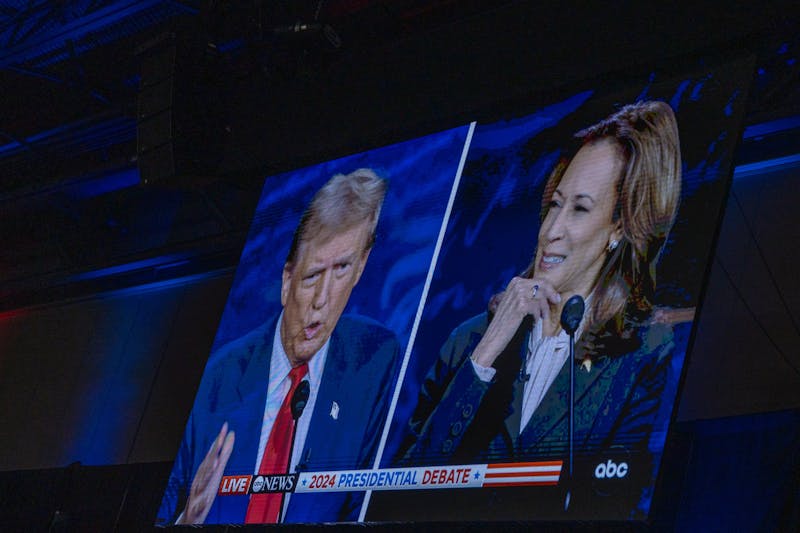
“America really, really hates women.”
Donald Trump will be the 47th president of the United States, and the entire world has gone into a frenzy. Both Americans and people in other countries seem to be rather shocked by this comeback made by Trump. Headlines rage as Trump receives this new title in spite of being a convicted felon. The comments read “proof that men can get away with anything.” The general public is also outraged that a man found liable for sexual abuse and known for his misogynistic comments has just earned the presidency again.
Social media platforms are plagued with concerns about how misogyny might have played a crucial role in the outcome of this election. Is it true that misogyny could have truly driven Americans to vote against a well qualified candidate like Vice President Kamala Harris?
My first instinct would be to say no. In politics, there are often too many factors at play, and gender is likely not the most important one to sway voters.
In fact, voters — that until a few days before the election were undecided — revealed that candidates’ gender was in fact not a determinant. For instance, Bob Reed, who decided to vote for Trump, almost chose Harris because of her youthful energy. Reed disliked Trump’s harsh rhetoric, which is well known to be full of incendiary comments about women and various racial identities. However, the crucial factor for him deciding to vote for Trump was that Harris would most likely continue Biden’s policies, where the response to illegal immigration (among other Biden stances) is weak.
On the other hand, Matthew Dugie, who voted for Trump in 2020, voted for Harris. Dugie claimed that different events related to Trump’s assassination attempt and internal shifts within the Republican Party made him reconsider his final decision, do more research and finally cast a ballot for Harris.
Moreover, at Penn, many students were inclined towards one candidate mostly based on their political alignments and interests. For instance, what seemed to draw in most Republicans at Penn was inflation and tighter control of immigration. The Democratic Party’s record with immigration wasn’t great: about 80% of Americans disapproved of Biden’s border control policies. And it is well known that leading immigration policy efforts was Harris’ task during the Biden administration.
Additionally, Trump’s “America First” policy could have been a key factor in drawing voters in. Surveys showed that foreign policy was among the most important issues for many voters. But unlike the past, the sentiment that the U.S. invests too many resources and much time into international affairs has grown. For instance, in 2017, Trump claimed that NATO was no longer a useful alliance and instead was draining the U.S. while the other members got to free ride. Moreover, Biden’s messy withdrawal from Afghanistan and the Arab-Israeli conflict have given reasons to the American people to worry about foreign affairs. In fact, over a quarter of the population would prefer the U.S. to take a minor role in international affairs; seven percent would prefer the U.S. to take no role at all. Hence, the attractiveness of an “America First” policy. Given that many voters in the U.S. have strong foreign policy concerns, it can be inferred that foreign policy differences between the two candidates could have been a swaying factor, with inflation and immigration playing a role too.
Nevertheless, misogyny can’t be ignored. The best examples are Trump and Vance’s use of incendiary rhetoric that caused endless outrage among the American people. Studies also show that voters can be swayed by gender biases. Research has been done on Hillary Clinton’s defeat, which concluded that internalized misogyny could have been a factor determining white women’s votes in 2016. Additionally, voters are 1.3 percentage points less likely to vote for a female candidate, and narratives spread by channels like Fox News, where it is claimed that Kamala Harris is less capable of holding office, prove that internalized misogyny and hate speech do play a role in determining elections. Granted, it is imperative that we as a society work to eliminate these gender biases.
Yet, there’s no conclusive evidence that gender is a voting heuristic for people. Instead, studies claim that factors like party, political interests, and experience can “overwhelm the effect of candidate sex” and even more in an era where resistance to women in politics has declined greatly. Even though a candidate’s sex can lead to assumptions and biases, these are often not as great in magnitude as those caused by policy positions and office records. Moreover, it is interesting to consider how close the gender demographics were: for both men and women, there was only a 10% difference between those who voted for Harris and those who voted for Trump. This balance suggests that gender was perhaps not as a dividing issue as many could think. If men, for instance, were harshly oriented by misogynistic perspectives, 44% of the male American population wouldn’t have voted for Harris.
The lack of a woman in office, and in itself Harris’ defeat, is a multifaceted issue. When trying to understand this shocking turn of events, it is important to consider all factors that may have affected American political behavior. Claiming that Harris lost solely due to misogynistic forces is hasty and unfounded. This claim fails to consider American politics as a complex set of problems both with domestic and global ties that come into play to reflect varied interests among voters. If people want to understand current developments and workings of American politics, it is essential to be able to see the forest among the trees. Reducing the 2024 election results to misogyny oversimplifies a larger network of political beliefs and decisions.
MARIANA MARTINEZ is a College sophomore from Bogotá, Colombia. Her email is marmari@sas.upenn.edu.
The Daily Pennsylvanian is an independent, student-run newspaper. Please consider making a donation to support the coverage that shapes the University. Your generosity ensures a future of strong journalism at Penn.
Donate












